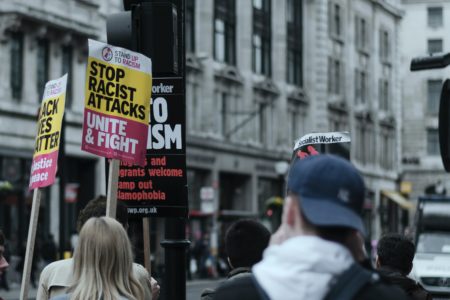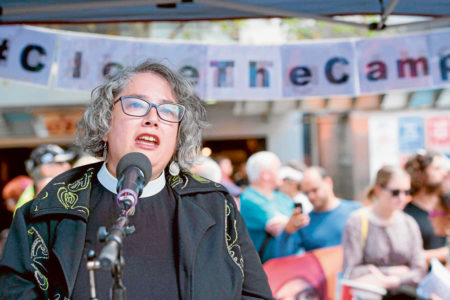Over the last couple of weeks I have found myself reflecting on Paul’s statement in Galatians (3:26-28) that through Christ we are all made children of God through faith. Divisions we construct are no longer the categories by which Christians are to view each other for we are all one in Christ.
We often act as if the statement that there is no Jew or Greek, slave or free, male or female is an injunction to merely tolerate people different to ourselves. We less frequently allow it to be an invitation to view people through the eyes of God and treat them with the loving generosity God extends to us.
For Christians, what defines us is our baptism and that alone. Our place within the community of the church is sealed by God’s actions in Christ and signed by our baptism.
This means, as a church and as Christians, we no longer regard people from a human point of view. That is to say, we no longer regard people through categories such as gender, race, economic status or sexuality, labels that so often divide us.
Rather we understand these divisions have been overcome by Christ so that we might live and act for radical inclusion that moves beyond mere toleration to create communities that recognise the image of God in each person, that develop ways to honour people in their difference as a fellow child of God.
When we use this lens we strive to create communities that find our unity in our being treasured children of God. We value difference as enrichment of our community rather than as a source of division and alienation from each other.
Such an understanding also demands we speak out about anything that threatens the full inclusion of another person. So we call out hate speech, sexism, homophobia, racism or classism because these behaviours continue to value what divides, rather than living into the way of God in which division is overcome in Christ.
A couple of chapters on in the letter to the Galatians, Paul reminds the church that knowing yourself as a child of God has implications for how we live in the world. Those of us who are incorporated into God’s life through baptism are invited to open ourselves to having our lives shaped by the Spirit of Christ, which produces the fruits of love, joy, peace, patience, kindness, generosity, faithfulness, gentleness and self-control. These gifts of the Holy Spirit enable us to bear each other’s burdens and amend the failing in our own lives (Galatians 5:22-6:3).
The fruits of the Spirit are to manifest themselves in our daily lives, in how we go about our working or volunteering, how we are with our friends and family, how we live in the world and how we engage with contemporary issues.
The fruits of the Spirit also call us to speak and act prophetically.
I have watched the news coming out of Charlottesville and been inspired by the witness of those who protest against hatred and violence. I am reminded that the gifts of the Spirit can lead Christians onto the streets, putting bodies in the way of all that oppose God’s reign.
We should not imagine that such racial hatred only exists in America. Racism is, sadly, alive and well in Australia as well. Manifesting the fruits of the Spirit in this country leads us to speak out against racist comments we hear in our daily lives, to oppose racism when we see it in civic society and, when occasion demands, actively confront bigotry and hatred.
As we approach the potential marriage equality postal survey, we as Christians need to reflect deeply on how the fruits of the Spirit will live through us.
No matter how you plan to vote, as Christians we need to ensure that homophobic speech and actions have no place in our discussions. We should be willing to speak out against homophobia and hatred in others.
In this way we can bear witness to the inclusive community God draws us into and be seen as bearers of the fruits of the Spirit which are both our gift and our calling.




